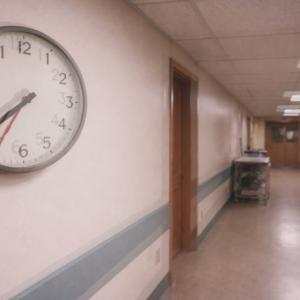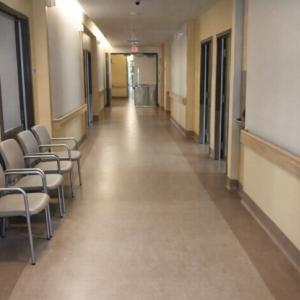Millions lack care in Ontario. Nurse Practitioners can help
As Ontario faces unprecedented health care challenges, the most clear and present danger to patients is the ongoing shortage of providers, leaving millions without necessary medical care.
I commend the province for enabling Nurse Practitioners to take on leadership roles in our health care system, and to act as medical clinical directors in Ontario’s long-term care homes.
NPs are advanced practice registered nurses who have completed a two-year master’s program in nursing after completing their baccalaureate degree. Most RNs transitioning to NPs have nearly 10 years of practical experience, must pass a competency-based practice exam, and undertake further clinical training.
It’s understandable that questions about safety and efficacy arise when there is health care role expansion. However, extensive evidence shows that NPs provide care on par with physicians, particularly in areas like chronic disease management, patient education, and preventive care.
With proven outcomes and rigorous training, NPs are well-prepared to take on leadership roles and meet Ontario’s growing health care needs. It's time we move past outdated stereotypes and recognize the data that supports our safe and effective practice.
NPs have a deep understanding of health regulatory frameworks, making us well-positioned to provide clinical care, and to fill health system gaps across the province.
As a result of our extensive training, which synergizes both nursing and medicine fundamentals, NPs can address all core areas of patient care, including admission, advanced assessments, diagnosing, treating, and discharging patients. NPs can also order tests, prescribe medications, provide palliative and symptom management as well as medical assistance in dying, and make referrals to specialists.
We treat the whole patient, working with a holistic focus on illness prevention and health promotion, grounded in extensive medical knowledge and expertise. Gatekeeping NPs from clinical leadership risks denying necessary care to vulnerable people and underserved communities.
There are currently over 5,400 NPs practicing in Ontario serving 14 million Ontarians. Practicing at the top of our scope, we can help close the health care gap.
Under the status quo, NPs are an untapped resource. The expansion of our scope is necessary to fully leverage our training and expertise for the benefit of Ontarians.
Many facilities face shortages of physicians to fill director positions, particularly in underserved regions. With the necessary knowledge and skills, we are ready and waiting to fill these gaps.
Expanding the professional role of medical clinical director to include NPs will give Ontarians stable access to the support and care necessary for their continued health.
Physicians will continue to fill medical clinical director positions across the province. But in places where staffing these positions has proven to be a persistent challenge, NPs will be able to capably and competently fill these roles, reducing administrative burden and addressing residents' needs.
In the face of both our health care crisis and our coming aging boom, this is evidence-informed, risk-mitigating, and responsible policy.
In the current moment, innovative models for the health workforce aren’t a luxury, they’re a must.
The NP role has evolved throughout the COVID-19 pandemic with scope-of-practice changes imposed by the Emergency Management Act. These changes allowed long-term care residents to receive timely care.
Currently, our health care system is struggling to cope with overwhelming demand and not enough supply of highly-trained medical professionals.
NPs are leaders in Ontario’s health care system, and should be considered, respected, and compensated accordingly. We’re a critical part of the solution to Ontario’s health care crisis. We shouldn’t be limited to the roles we have historically been relegated to filling.
—
Michelle Acorn, NP, is the Chief Executive Officer of the Nurse Practitioners’ Association of Ontario.








